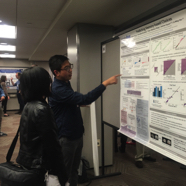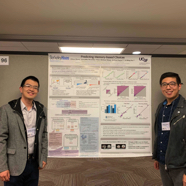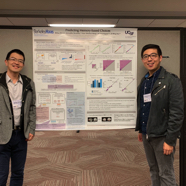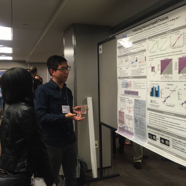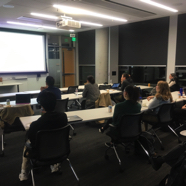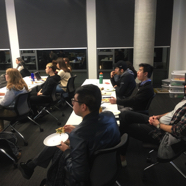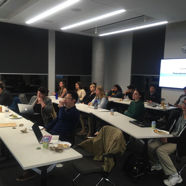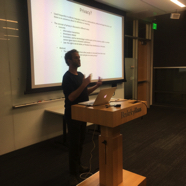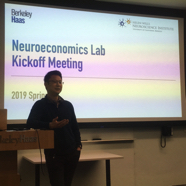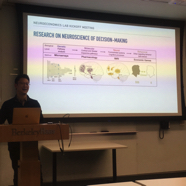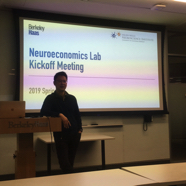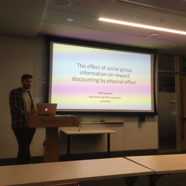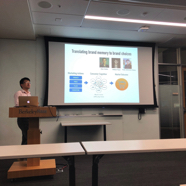Siyana Hristova receives URAP Summer Award
Samira Maboudian receives SRNDNA Summer Undergraduate Research Award
New paper out at Nature Communications
Zhu, Lusha, Yaomin Jiang, Donatella Scabini, Robert T. Knight, and Ming Hsu. 2019. “Patients with Basal Ganglia Damage Show Preserved Learning in an Economic Game.” Nature Communications. [Link]
Gamble like you're a subject in our study
Zhihao Zhang receives Career Transition Award
New paper on model that predicts stereotype's effects on behavior and outcomes
Jenkins AC, Karashchuk P, Zhu L & Hsu M. Predicting human behavior toward members of different social groups. Proceedings of the National Academy of Sciences. 2018.
Abstract:
Disparities in outcomes across social groups pervade human societies and are of central interest to the social sciences. How people treat others is known to depend on a multitude of factors—e.g., others’ gender, ethnicity, or appearance—even when these should be irrelevant. However, despite substantial progress, much remains unknown regarding (i) the set of mechanisms shaping people’s behavior toward members of different social groups and (ii) the extent to which these mechanisms can explain the structure of existing societal disparities. Here we show in a set of experiments the important interplay between social perception and social valuation processes in explaining how people treat members of different social groups. Building on the idea that stereotypes can be organized onto basic, underlying dimensions, we first found using laboratory economic games that quantitative variation in stereotypes about different groups’ warmth and competence translated meaningfully into resource allocation behavior toward those groups. Computational modeling further revealed that these effects operated via the interaction of social perception and social valuation processes, with warmth and competence exerting diverging effects on participants’ preferences for equitable distributions of resources. This framework successfully predicted behavior toward members of a diverse set of social groups across samples and successfully generalized to predict societal disparities documented in labor and education settings with substantial precision and accuracy. Together, these results highlight a common set of mechanisms linking social group information to social treatment and show how pre-existing, societally shared assumptions about different social groups can produce and reinforce societal disparities.
Voice of America: Curtailing Offensive Speech and the Fragility of Common Sense
On the one hand, the bias against certain groups is so obvious as to be common sense. On the other hand, get outside of these "common sensical" categories and things get really controversial, really fast. Are rural Americans biases against? What about working class? Is there pervasive bias against caucasians?
I think most of us have heard these and similar claims. So the question I would like to pose is, can we validate these claims in some way? Even if we find some of these claims offensive, and the people making these claims odious, can we nevertheless test these claims rigorously, and either validate or falsify them in a fact-based, data-driven manner?
Since our forthcoming paper on the topic is still under embargo, I will leave things a bit vague here, and just say that I think we are beginning to develop tools that may finally answer these difficult questions. So, as lame as it might sound, stay tuned...
Cross posted on faculty page.
